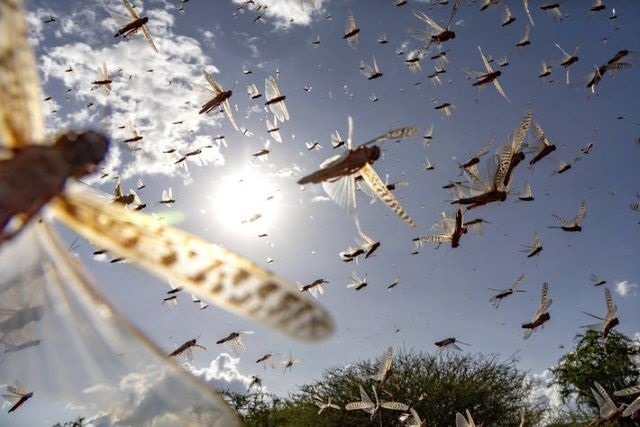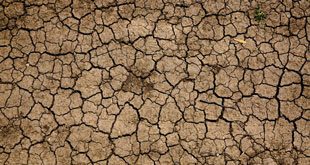
Addis Ababa, Ethiopia | Xinhua | The Food and Agriculture Organization (FAO) of the United Nations on Wednesday said the desert locust upsurge that had ravaged the Horn of Africa for more than two years has ended.
“The current desert locust upsurge has finally ended in the Horn of Africa after more than two years of intensive survey and control operations carried out by ground and air with generous support from the international community,” the FAO said in its latest dessert locust situation update.
According to the FAO, for nearly the second consecutive month, no significant locust infestations had been detected in Djibouti, Eritrea, Ethiopia, Somalia, and Kenya during February.
The UN agency, however, stressed that although rain has not fallen recently and ecological conditions are dry, small groups of immature adults were seen moving southwards in eastern Ethiopia, which suggests that a few residual infestations may still be present.
“Therefore, surveys and vigilance should be maintained,” the FAO said.
This year’s winter breeding along both sides of the Red Sea and the Gulf of Aden has been very poor due to a lack of rainfall.
China, which has been helping deal with natural disasters in the Horn of Africa region, had been helping countries in the region in their efforts to effectively respond to the desert locust upsurge.
When Ethiopia suffered from the worst desert locust invasion in about 25 years for much of 2019 and 2020, the Chinese government had donated batches of what the Ethiopian government described as “timely and much-needed” anti-locust materials.
The batch of anti-locust donations by the Chinese government included 72 metric tons of pesticides, 2,000 units of hand-held ULV sprayers as well as 20,000 sets of personal protective gear.
The desert locust (Schistocerca gregaria), considered as the most dangerous of the nearly one dozen species of locusts, is a major food security peril in desert areas across 20 countries, stretching from west Africa all the way to India, covering nearly 16 million square kilometers, according to the UN.
*****
Xinhua
 The Independent Uganda: You get the Truth we Pay the Price
The Independent Uganda: You get the Truth we Pay the Price


